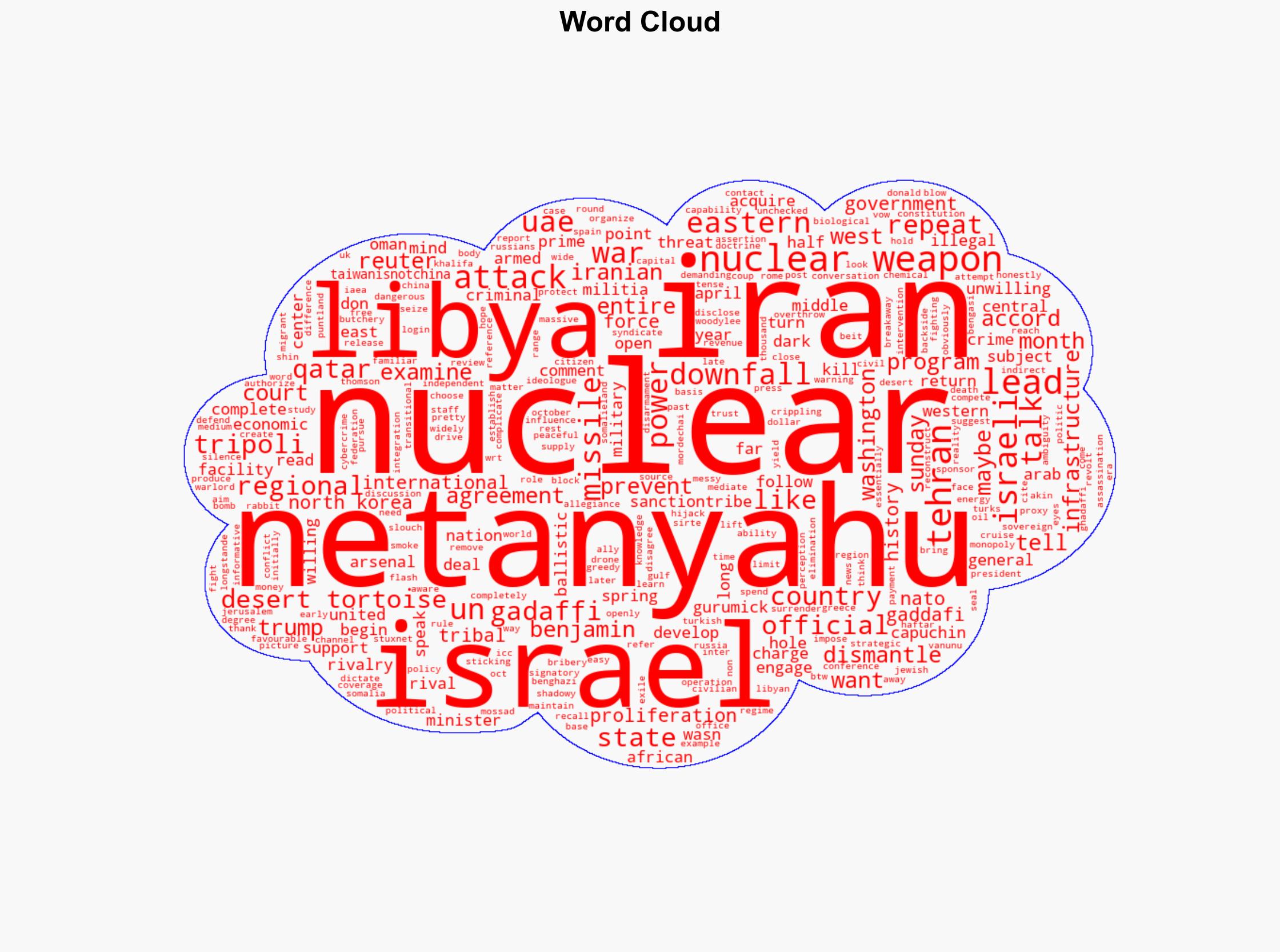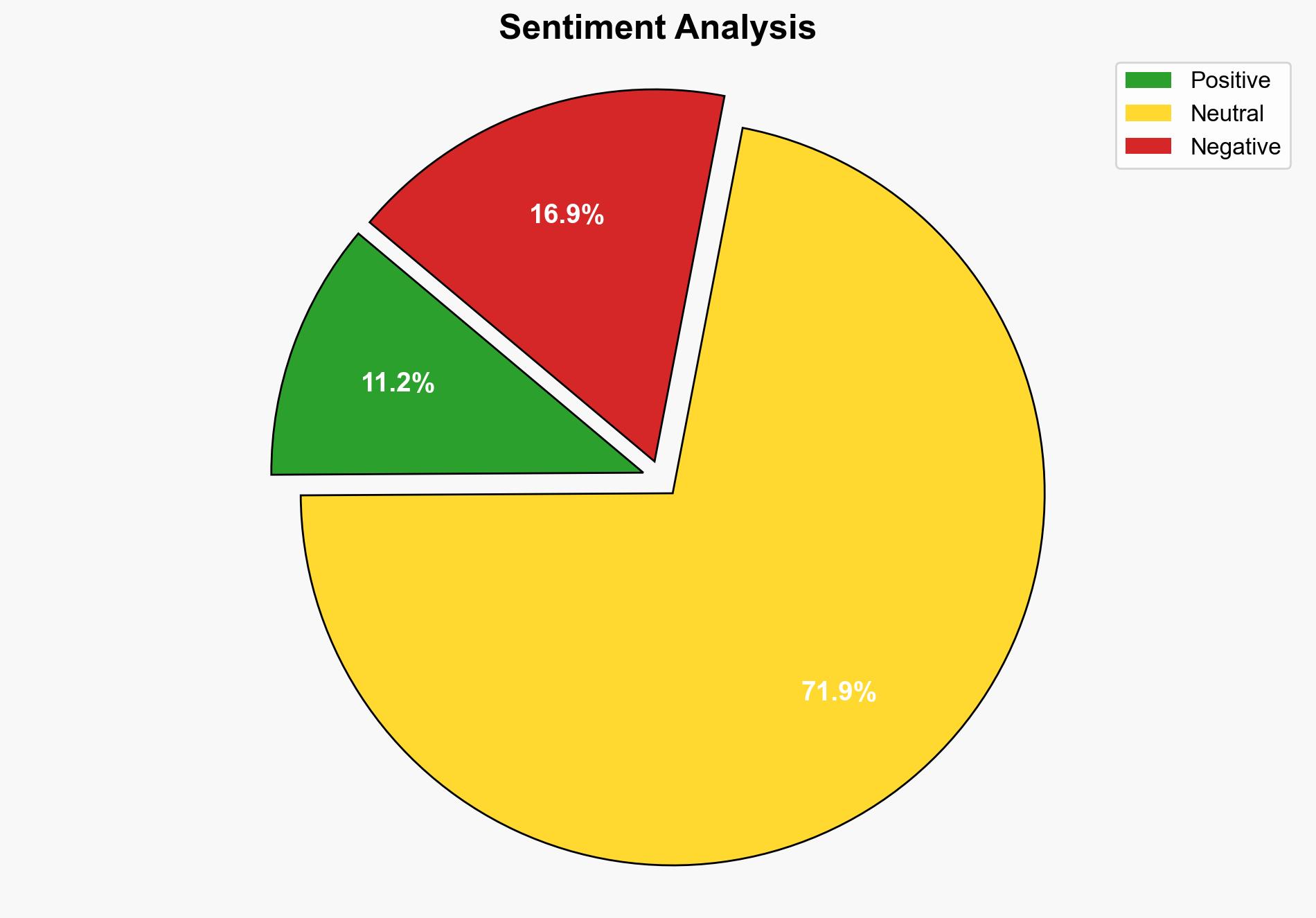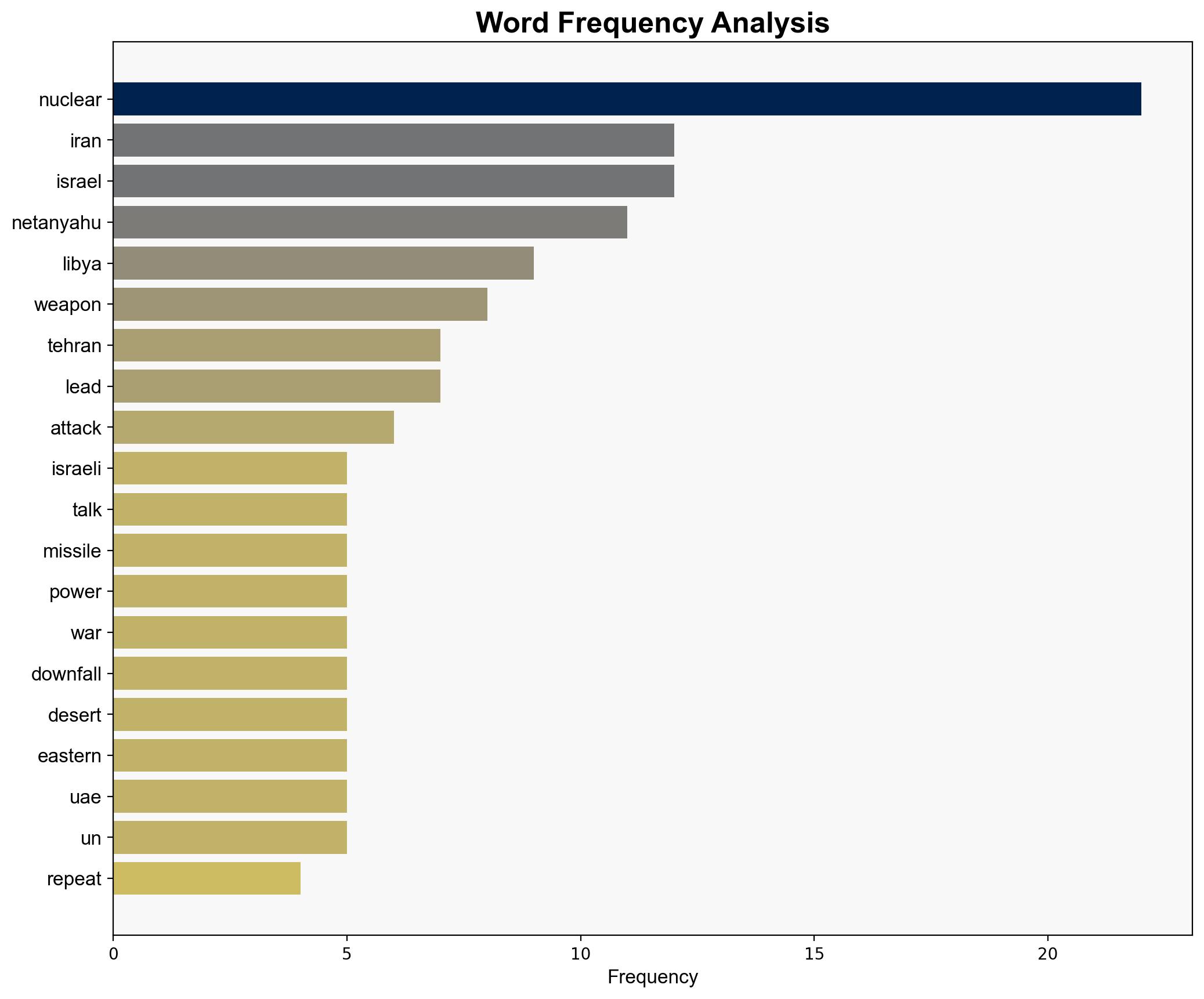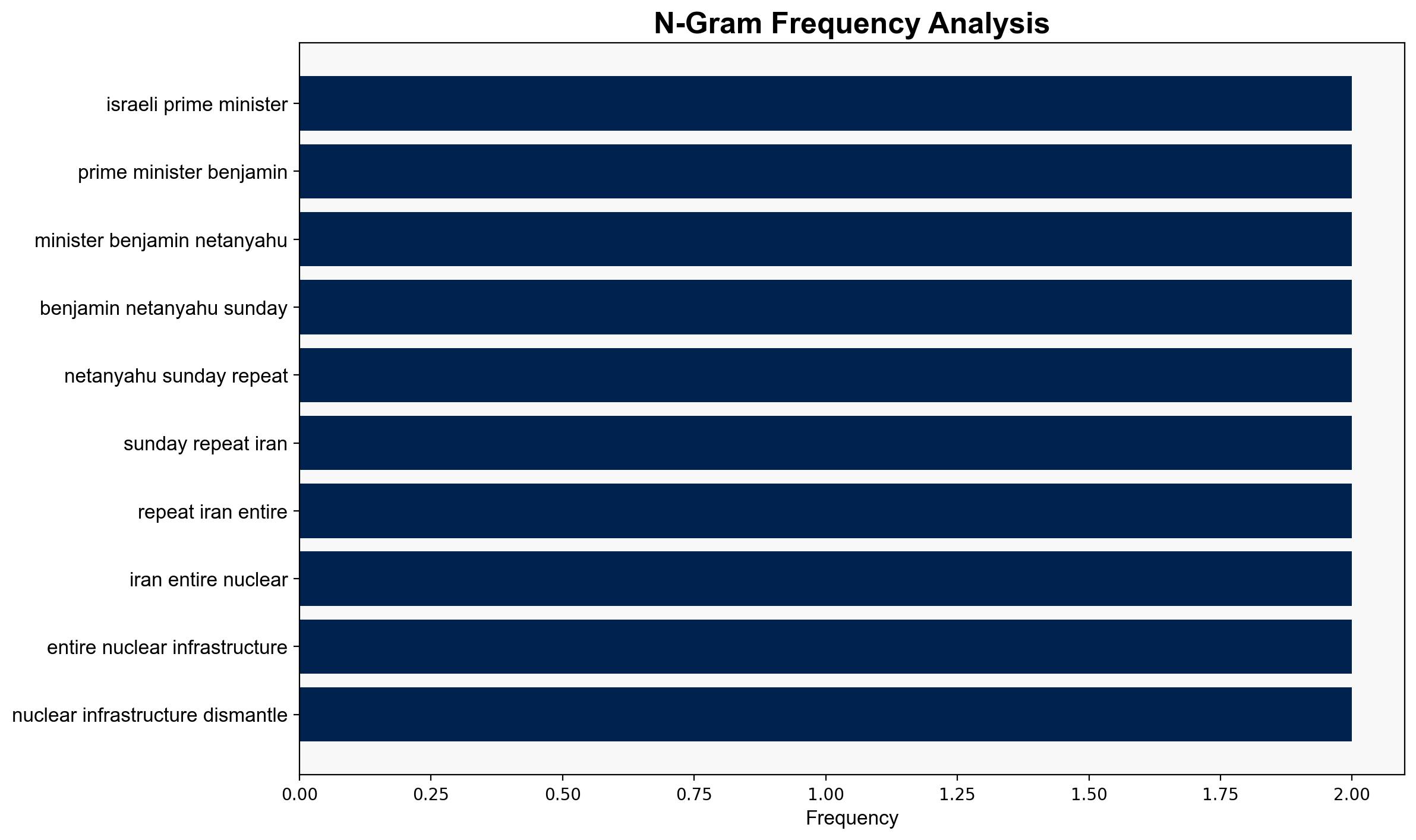Netanyahu says Iran’s entire nuclear program must go – Japan Today
Published on: 2025-04-27
Intelligence Report: Netanyahu says Iran’s entire nuclear program must go – Japan Today
1. BLUF (Bottom Line Up Front)
Israeli Prime Minister Benjamin Netanyahu has reiterated his stance that Iran’s nuclear infrastructure should be completely dismantled. This statement comes amid ongoing indirect negotiations between the United States and Iran, mediated by Oman, to reach a nuclear accord. Netanyahu’s position underscores Israel’s long-standing commitment to preventing Iran from acquiring nuclear weapons. The strategic environment remains tense, with potential implications for regional stability and international diplomatic efforts.
2. Detailed Analysis
The following structured analytic techniques have been applied to ensure methodological consistency:
SWOT Analysis
Strengths: Israel’s strong intelligence capabilities and strategic alliances enhance its ability to monitor and respond to regional threats.
Weaknesses: Persistent regional tensions and internal political challenges may limit Israel’s diplomatic flexibility.
Opportunities: Potential for renewed diplomatic engagements to address nuclear proliferation in the Middle East.
Threats: Escalation of military conflicts and the risk of nuclear proliferation by state and non-state actors.
Cross-Impact Matrix
The ongoing negotiations between the U.S. and Iran could influence regional power dynamics, with potential impacts on Israel’s security posture. The interplay between diplomatic efforts and military readiness may create feedback loops affecting regional stability.
Scenario Generation
Best Case: Successful diplomatic resolution leads to a verifiable reduction in Iran’s nuclear capabilities, enhancing regional stability.
Worst Case: Breakdown in negotiations results in increased regional tensions and potential military confrontations.
Most Likely: Continued diplomatic engagement with intermittent periods of heightened tension and strategic posturing by regional actors.
3. Implications and Strategic Risks
The potential for military escalation remains a significant risk, with implications for global energy markets and international security. Cyber threats and asymmetric warfare tactics may be employed by state and non-state actors, complicating traditional security measures.
4. Recommendations and Outlook
- Enhance diplomatic efforts to support a comprehensive and verifiable nuclear agreement with Iran.
- Strengthen regional alliances and intelligence-sharing mechanisms to mitigate security risks.
- Prepare for potential cyber and asymmetric threats by investing in advanced cybersecurity infrastructure.
5. Key Individuals and Entities
Benjamin Netanyahu, Donald Trump, Iranian officials.
6. Thematic Tags
(‘national security threats, cybersecurity, counter-terrorism, regional focus’, ‘cybersecurity’, ‘counter-terrorism’, ‘regional focus’)





